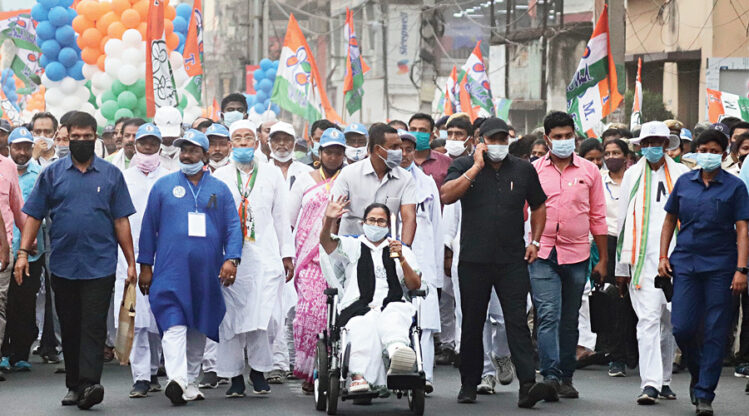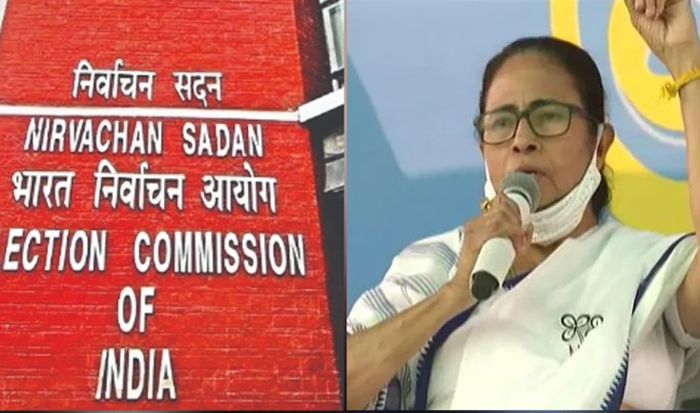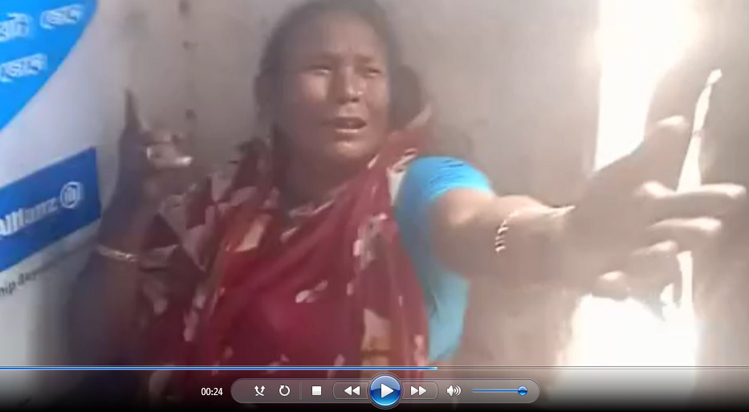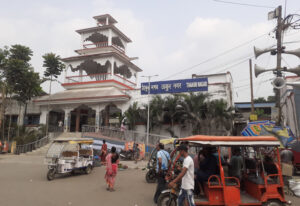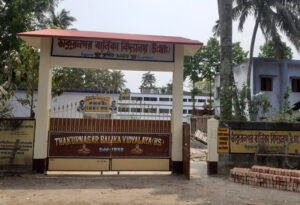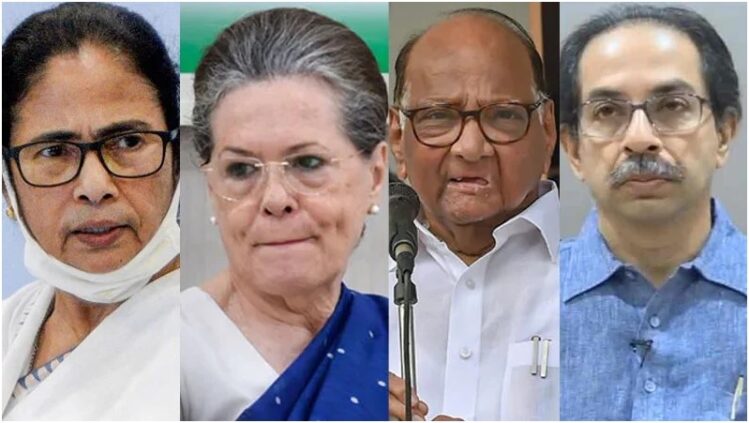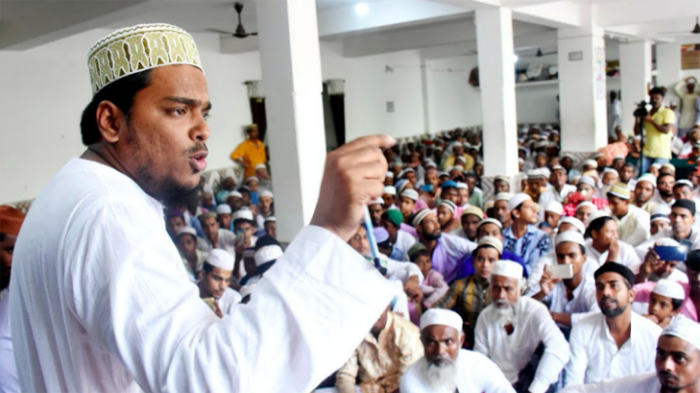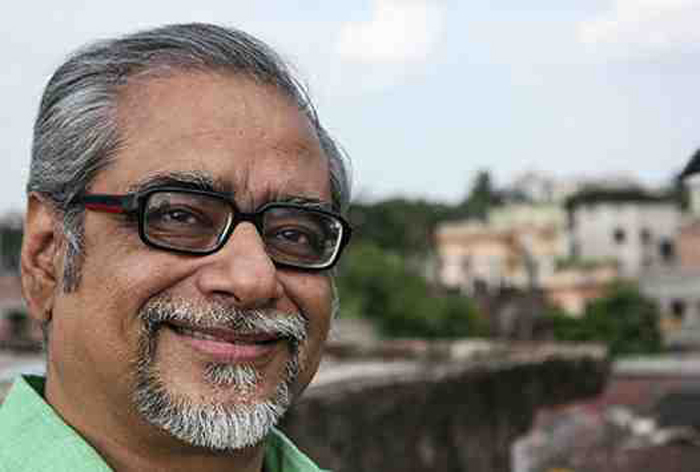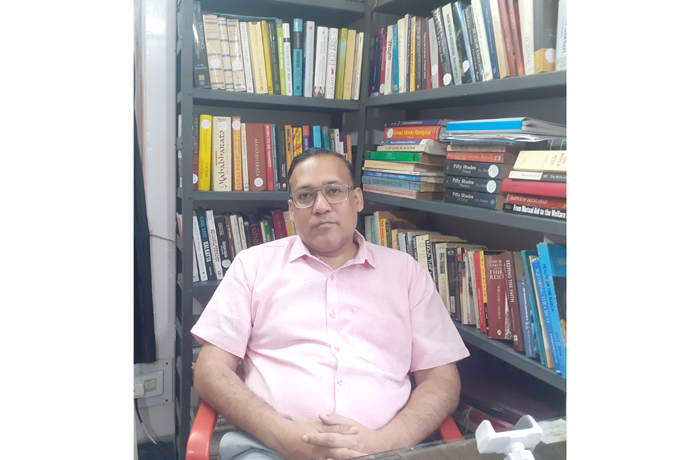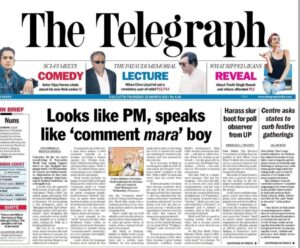Kolkata: When central forces gunned down four persons at Sitalkunchi, Cooch Behar, as a reporter for almost two decades and observer from outside Bengal, I was shocked to the core. I have reported from Naxal hotbeds too but I have not witnessed such ‘firing or encounter’ by the forces during the polls. The reason being, even hardcore Naxals in their strongholds do not dare to take on the forces when they remain present in such a large number. And for any common man or voter, forces’ batons are good enough to disperse the crowd or the hooligans.
The political fight between two parties and their cadres is a different matter. And forces always control such fights.
Before the shooting at Sitalkunchi, another incident occurred the same day in Cooch Behar where a boy was shot dead by a rival political party supporter. TMC later claimed it was their cadre and was killed by BJP supporters.
The Bengal assembly polls for 294 seats have been divided into eight phases and to conduct it, 75000 central forces have been deployed while 35000 Bengal police personnel are also being used.
In one phase an average 35 constituencies go to polls. It is the first time in history that a single assembly constituency has more than 20000 security personnel to man the booths of an assembly segment. Despite such unprecedented security presence it is a matter of grave concern that news of murder and mayhem continue to do the rounds.
The reality of Sitalkuchi incident
Based on the statement of the 15-year-old boy who was beaten by the forces, there is serious concern whether the gory incident was a result of what the Central government agencies are claiming it to be or it was preplanned.
The boy stated that he was at the market, around 350 meters away from the polling booth, and without any reason or warning, some security personnel started beating him up. He was thrashed badly and later left bleeding on the ground. When people saw his condition a crowd gathered and started agitating against the forces. The primary question here being, why questions not be raised about the minor boy being beaten up for no reason. He was not even at the polling booth. Instead he was at the marketplace. Then why is it questionable that the people got provoked as a consequence of that mindless beating of the minor by the very forces who have been deployed to ensure a peaceful and fair elections? What or who gave the forces the right or order to open fire, that too not aiming below the waist, as per the law, but directly at their bodies (chest, stomach etc) that inevitably would kill them? As per the Indian laws even convicted criminals cannot be fired at like that.
A few videos surfaced after the incident, people in it also claimed that those who were killed were standing in the queue to cast their votes when they were shot at without any provocation. Was this a premeditated act based on the fact that it is a Muslim majority area? Would such firing have taken place had it been a mixed locality? Such questions are bound to surface.
However, an official report claimed that the boy was unwell and fell on the road. When the forces came up to check on him people thought they had beaten him up and it angered them.
Significantly, in this era of smartphones, there is no video or photograph which shows that there was a mob and that they had attacked the forces leading to any security personnel being injured.
Also, even after two days of the killings, postmortem report has not been made public.
Watch Sayantan Basu’s video
Statement of Amit Shah
Home Minister Amit Shah, who has made Bengal his second home the last couple of months in order to campaign for his party candidates along with Prime Minister Narendra Modi, claimed that victims had wanted to snatch weapons from the forces, hence they opened fire. He went further and used the incident to polarize votes on Hindu-Muslim lines. Shah claimed that Mamata Banerjee did not raise the issue of all the five killed, but only four, who happen to be Muslims.
But the Bengal chief minister had mentioned about all five in her statements and her party, TMC, led by Derek OBrien, in his letter to Election Commission, had mentioned all the five killings, which is documented evidence. This happened a day earlier, yet the Home Minister did not hesitate to make such misleading statements to confuse voters and polarize votes.
More Sitalkunchis: Threat by BJP state president Dilip Ghosh
Before Amit Shah’s comment, the reaction of Dilip Ghosh had already been doing the rounds on Bengal’s news channels. BJP state president termed the victims as ‘naughty boys’ and he warned that there will be more Sitalkunchis if these boys did not behave themselves. This open threat and violation of all rules of law and election ethics in particular, is going unaddressed by the concerned authorities. Neither the courts nor the Election Commission are taking suo moto action despite the threat being broadcast and reported by almost all media houses.
Quite naturally, Ghosh’s comments are being seen as a hint to the possibility that there were orders from the BJP to the forces for such heinous actions.
Adding strength to the questions regarding the action by the forces is a video that is doing the rounds where BJP’s Basirhat MP, Sayantan Basu, is heard saying that he has told the CRPF to open fire against people who oppose their supporters and that the police will be locked inside the police station (and hence not allowed to intervene or tackle the situation). The timing of this video is not clear, but Basu had said this publicly at a rally.
Another BJP leader Rahul Sinha reacted after Sitalkunchi incident that there should be eight people killed instead of four.
Why Bengal should worry about these developments
Before 2014, when BJP had not come to power in Delhi, and PM Narendra Modi was chief minister in Gujarat, there was a development model propagated in the name of Gujarat Model. However, concerned citizens were aware of the real picture of Gujarat and more concerned about the 2002 carnage which took place right under the nose of PM Modi and HM Amit Shah.
Another nightmare for Indian citizens became a reality in 2020 when the Delhi pogrom took place. It happened during the US president’s India tour, after Delhi assembly polls and during the CAA-NRC protests. It was instigated by BJP’s Kapil Mishra, who gave the slogan of Desh Ke Gaddaron Ko, Goli Maro Saalon Ko (shoot the traitors). According to BJP and its supporters, the people who protest democratically and fights for their rights, are traitors. His speech is on camera and circulated freely among supporters and opposers alike.
The national capital had not seen such a pogrom in almost four decades. In 1984, when Indira Gandhi was assassinated, the Sikh community had to bear the brunt of a similar pogrom then. But since then old timers are comparing the present situation to the one that was witnessed during the blighted Partition of 1947.
It is a reason for concern for India that even in the 21st century it witnessed such pogrom right in the heart of the national capital. But who were put behind bars on
charge of instigating the pogrom or riots? The very people from the minority community whose family members or friends were killed in large numbers during the pogrom and who lost more than just their limb or livelihood.
Several of the brightest minds from among the Muslim community including Umar Khalid, Khalid Saifi, Meeran Haider and many more young and well qualified boys and girls, some of whom are still behind bars, some are out on bail, have been charged with instigating the Delhi riots. But those who openly gave slogans to kill remain free citizens and treated like valiant soldiers of the hyper nationalists brigade or rather pseudo nationalists, if you go by their history during the British rule and India’s freedom movement.
We have witnessed in the recent past how well known intellectuals and social workers of India have been termed urban Naxals and charged with false cases of sedition or masterminding the violence in Bhima Koregaon and are forced to battle it out in the courts. It includes the likes of Sudha Bharadwaj, Gautam Naulakha and Stan Swamy.
Going by BJP’s reactions, what happened at Sitalkunchi and thereafter indicates that it was not an one off incident. And if it comes to power, BJP will continue to bend the laws and the law enforcement agencies in Bengal as well.


